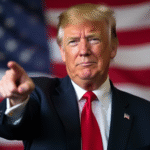Introduction
The issue of Europe translating geography into political unity is not new. Henry Kissinger famously quipped, “Who do I call to speak to Europe?” Today, this historical cacophony is exacerbated by the withdrawal of the United States.
Recent Border Violations and NATO’s Response
In recent days, NATO experienced its most serious border violation since its founding in 1949. Dozens of drones entered Polish airspace from Belarus, followed shortly by three Russian fighter jets violating Estonian airspace. These incidents add to joint military exercises between Russia and Belarus in mid-September. Polish Prime Minister Donald Tusk described it as “the closest to open conflict since World War II” and invoked Article 4 of NATO to initiate consultations with other members.
During the 80th session of the United Nations, the Security Council also plans to convene to address these new Russian aggressions. The trend is clear: the US retreat within its alliances has allowed the Kremlin to escalate attacks, with recent provocations aimed at demonstrating how some European countries are reluctant to safeguard their security structures.
Impact on NATO and European Divisions
The war has deepened disagreements within the alliance. NATO Secretary General Mark Rutte demanded that Russia “cease violating allied airspace,” but also announced investigations to determine if these were deliberate incursions, leaving room for inaction. While the war initially strengthened NATO with the inclusion of Sweden and Finland and increased defense budgets, repeated hesitations to respond to numerous Russian hostilities—such as sabotage of telecommunications, political assassinations, or election interference—have been detrimental.
Russia continues to provoke to expose weaknesses and amplify political divisions in Europe. When the Kremlin cynically denies intention behind recent incursions, Europe limits the forcefulness of its response and conveys a perception of impotence that Russia seeks and requires.
Putin must insist on a fundamental idea for his regime’s survival: the West is a decaying and, above all, useless concept where alliances are not genuine entities but groups of countries unwilling to employ their own instruments. More critically, Putin’s schemes are not just for Europe but messages for Ukraine projecting isolation: if Europe fails to respond to territorial violations, it implies Ukraine stands alone.
From the United States, Europe should learn that ambiguity is what Putin seeks. Russia cannot win the war solely through military means; it requires a psychological element of mistrust within the West.
Putin’s reliance on the current US administration is also evident. As Russian aircraft violated Estonia’s airspace, Trump boasted about profiting from the Russia-Ukraine conflict. With diminished US support, fewer economic sanctions, and insistence on a ceasefire, Putin can now focus on Europe. It is hoped that Europe can concentrate with equal seriousness on Russia.
Key Questions and Answers
- What recent events have tested Europe’s unity? Recent border violations by Russia, including drones entering Polish airspace from Belarus and Russian fighter jets violating Estonian airspace, have challenged European unity.
- How has the US retreat affected NATO and Europe? The US withdrawal within its alliances has allowed Russia to escalate attacks, exposing weaknesses and amplifying political divisions in Europe.
- What is Putin’s strategy regarding the West? Putin aims to portray the West as decaying and useless, undermining genuine alliances and fostering mistrust within the West.
- Why is ambiguity beneficial for Putin? Ambiguity allows Russia to create psychological mistrust within the West without relying solely on military means.
- How does Putin’s focus shift with diminished US involvement? With reduced US support, fewer sanctions, and insistence on a ceasefire, Putin can concentrate on Europe, exploiting perceived impotence in the face of his aggression.






